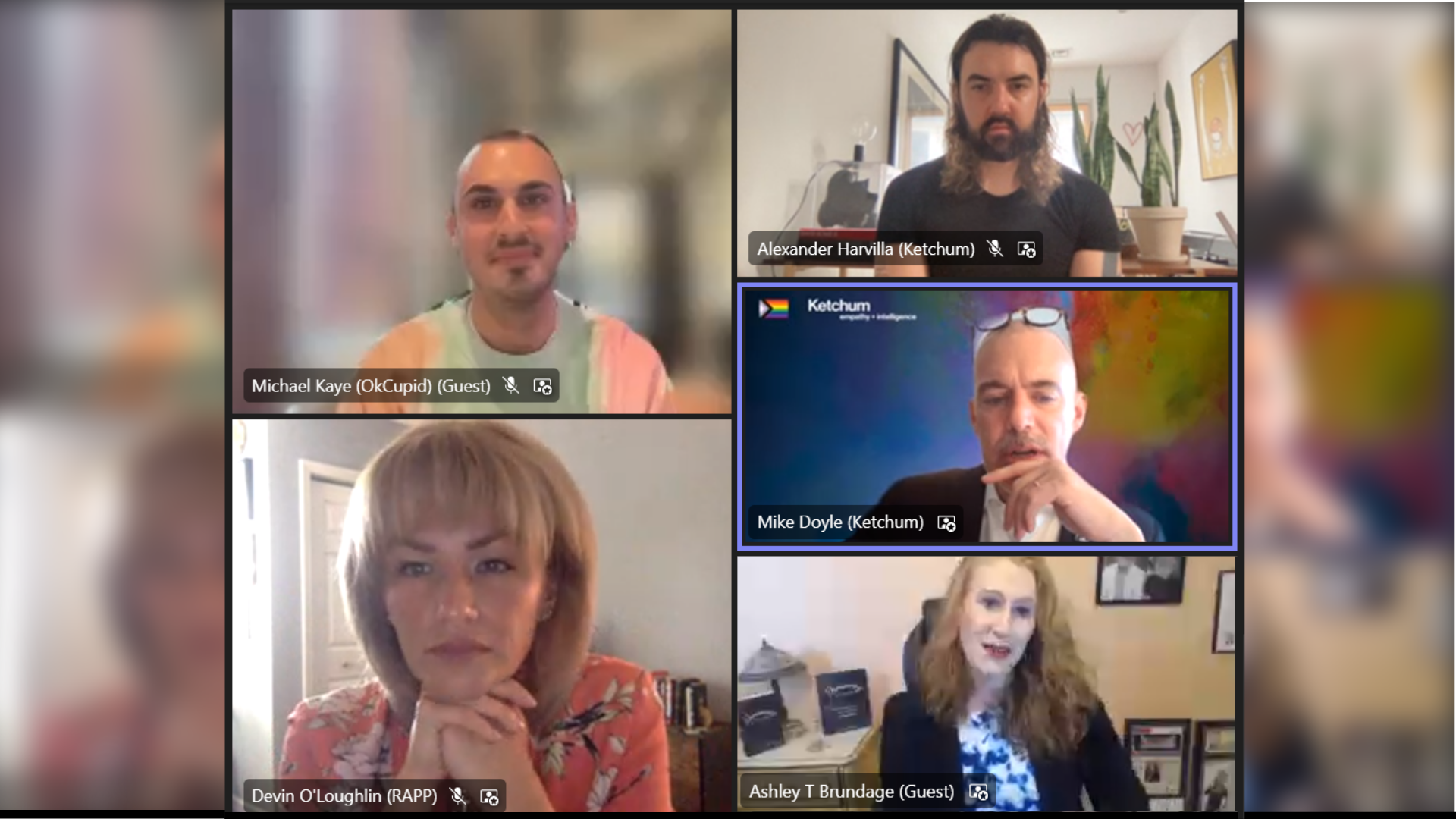I have always taken great pride in being a part of the Ketchum family, but never more than the last year. As an agency, we have truly lived our purpose, showing up for each other and our clients to do work that truly matters. The effort, resilience and care Ketchum people displayed daily was inspiring, as was the difference-making client impact. The pandemic temporarily separated us and blunted some of our important cultural touchstones, but nevertheless, we reimagined our value to each other and our clients, making most days better than the one before.

So where does that leave us? As we shift into the coming post-pandemic age, one of the often-repeated themes is prognosticating the “New Normal.” What newly learned behaviors born out of necessity will flourish beyond COVID-19? And maybe the most important question: What are the foundational strengths that have proven indispensable during this most difficult of moments?
Early last year, when we rolled out our new tagline — empathy + intelligence — we knew we were on to something. It tapped into the past, present and future of Ketchum. It put a spotlight on our people and the analytics that will enable them to be more precise than ever before, ensuring data is at the center of every client engagement — something I and others have been vocal about. That said, Ketchum, now and forever, is about people building trust with people. And during this incredibly difficult period, a superpower has emerged that has enabled this firm to become stronger than before: intentional empathy. Empathy has always been a formative part of the Ketchum culture, but as we forge our future, it’s an attribute that will increasingly define the Ketchum consultancy.
Refining Client Empathy at Ketchum
If you played word association with anyone who worked at or with Ketchum, I believe “service” would be a common response. Before client-centricity became an industry catchphrase, Ketchum was masterful at building deep, long-lasting relationships with the brands and organizations we work with. Anticipating client needs, defusing difficult situations and managing high-performing teams remain highly valued skills among our consultants, adding up to an organization that earned a reputation for industry-leading client service. But something has changed: The business stakes have never been higher, the profile of communications strategy has never been greater, and clients require something more than service — they require counsel built on intentional empathy.
Empathy is defined as “the capacity to understand what others are feeling from within their frame of reference.” When we are at our best, empathy serves as a pathway for insights, strategies and creative ideas. Sometimes, it can be easy to confuse empathy with service and sympathy — doing what our clients want, not necessarily what they need. This is not to denigrate service, but service without deep understanding and the willingness to counsel clients with courage is ultimately hollow and easily replaced. Conversely, applying the rigor required to demonstrate intentional empathy is both rewarding for us and enormously valuable to our clients. Our goal is not simply happy clients, but clients who trust us because we deliver on what we promise, apply understanding and logic to our counsel, and do it all from a perspective they understand.
The good news is that skills that enable empathy can be learned, usually through role modeling that links behaviors to successful client outcomes. My own journey as a counselor continues, and I try to learn something new every day. I often go back to one of my earliest professional mentors as a starting point — as she said, “It’s not enough to know what they want; you have to know why.”
Research suggests a direct correlation between an organization’s success and fostering a culture of empathy. A recent Gartner study demonstrates that managers who rate high for empathy have three times the impact on their employees’ performance than those who rate low. It’s not surprising a deep understanding of the people you work with and for would result in a better work experience — and, in the spirit of the Service Profit Chain, result in bottom-line impact of an agency like Ketchum. As we continue evolving Ketchum as a consultancy, part of that evolution is learning new skills to keep pace with the rate of change. While many of these will be described as “hard skills,” I believe a commitment to the “soft skill” of empathy will be revealed as a true differentiator that continues to make Ketchum uniquely Ketchum and fuels our long-lasting client relationships.



